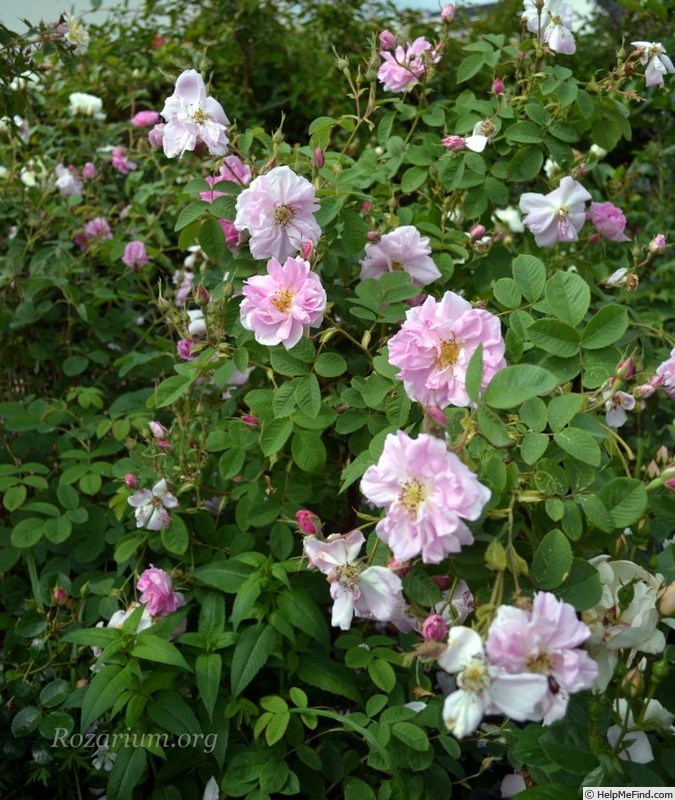|
|
'Gul-i Muhammadi' rose Description

Photo courtesy of Rozarium
Bloom:
Pink. Strong, damask, sweet fragrance. Average diameter 2.5". Medium, semi-double to double, borne mostly solitary, in small clusters bloom form. Once-blooming spring or summer. Long sepals buds.
Habit:
Arching, armed with thorns / prickles, bushy, spreading. Grey-green foliage. 5 leaflets.
Height: 5' to 6' (150 to 185cm). Width: up to 5' (up to 150cm).
Growing:
USDA zone 4b through 9b. Can be used for cut flower, garden or hedge. Remove old canes and dead or diseased wood.. Prune after flowering is finished.
Patents:
Patent status unknown (to HelpMeFind).
Notes:
Rosa x damascena Mill. Gard. dict. ed. 8. Rose no.15: 1768.
Recent research in Japan indicates that both summer and autumn damask roses originated with (R. gallica X R. moschata) X R. fedtschenkoana. Gene, Vol. 259, Issues 1-2, 23 December 2000, Pages 53-59.
Rosa belgica Mill. is today seen by botanists as a synonym of Rosa x damascena Mill. However, the descriptions of Miller are quite different re habit, number of leaflets, fragrance, sepals, bloom form. It is probable Belgica was actually a hybrid damask. Modern Roses says it was a alba-canina hybrid.
|